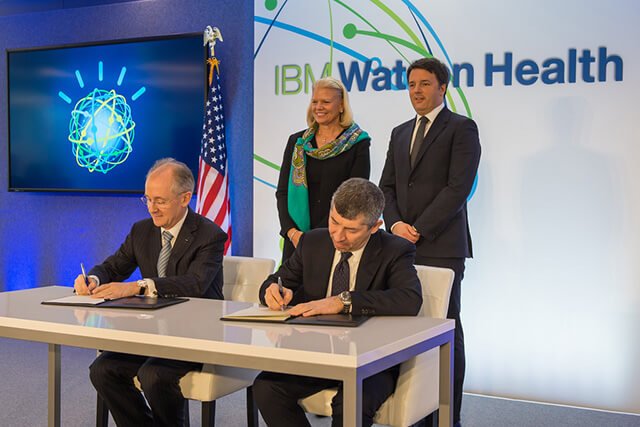The companies have entered a two-year agreement aimed at the development of secure blockchain-based ways to exchange health data.
IBM Watson Health has partnered with the U.S. Food and Drug Administration to develop a secure blockchain-based way to exchange health data. IBM and the FDA will explore the exchange of owner-mediated data from several sources, such as Electronic Medical Records, clinical trials, genomic data, and health data from mobile devices, wearables and the “Internet of Things.” The companies will first of all focus on oncology-related data.
Traditionally, health data is not open to patients and they can’t easily share with researchers or providers. Moreover, large scale sharing of health data is limited by concerns of data security and breaches of patient privacy during the data exchange process. However, if patients could share their data securely, this would enable major advancements in healthcare. Blockchain technology, that is widely studied and adopted by financial institutions, can allow for transformative healthcare solutions in the future. All information can be kept on an unalterable distributed ledger providing accountability and transparency in the data exchange process.
According to IBM Institute for Business Value paper ‘Healthcare rallies for blockchain’, that contains a survey of about 200 healthcare executives, more than seven in ten industry leaders see incredible potential in the blockchain if applied to healthcare sphere where the technology can enable managing clinical trial records, regulatory compliance and medical/health records.
IBM Watson Health and the FDA intend to adopt the blockchain to health cate industry by supporting important use cases for information exchange across a wide variety of data types, including clinical trials and “real world” evidence data. New possibilities can potentially lead to new biomedical discoveries. For instance, doctors can take a better control over population health using the information from patients’ wearables and connected devices.
“The healthcare industry is undergoing significant changes due to the vast amounts of disparate data being generated. Blockchain technology provides a highly secure, decentralized framework for data sharing that will accelerate innovation throughout the industry,” said Shahram Ebadollahi, Vice President for Innovations and Chief Science Officer, IBM Watson Health.
IBM Watson Health and the FDA will also address collaborative efforts to leverage the large volumes of diverse data in today’s biomedical and healthcare industries. The possibility to securely share private medical data could potentially hold the promise of new discoveries and improved public health.
IBM has already large experience in blockchain technology – the company is founding member and key contributor to the Linux Foundation’s Hyperledger project.
The initiative of IBM Watson Health the FDA is a two-year agreement. The companies are going to share initial research findings in 2017.
